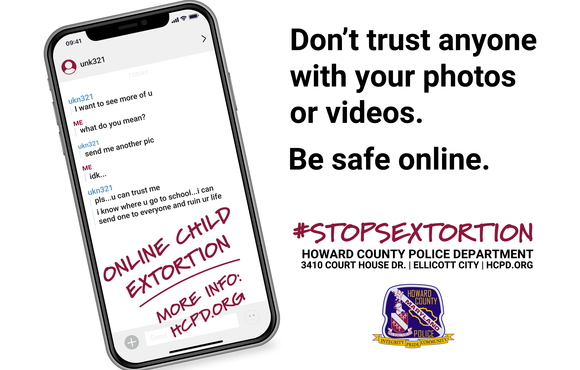As if being a teenager wasn’t already enough, now there’s a new danger specifically targeting America’s pre-adults: ‘sextortion.’
Lifestyle :
If you’ve never heard of sexploitation, the story of 17-year-old Ryan Last will best explain the social media scheme.

One day while browsing social media, Ryan received a direct message from a beautiful teenage girl around his same age. Naturally, the young man and his hormones wanted to know more. The online conversation quickly grew intimate, and the beautiful young girl then sent Ryan a nude photo of herself before asking Ryan to share an explicit image of himself in return. Ryan instantly took a naked photo of himself and sent it to the girl. The only problem: the person he sent his real and nude photograph to wasn’t a girl at all, but an online scammer.
After receiving the 17-year-old’s nude photo, the online cybercriminal demanded $5,000 and threatened to make the photo public and send it to Ryan’s family and all his friends if he didn’t pay the ransom.
The San Jose, California former boy scout and straight-A student told the cybercriminal he couldn’t pay the full amount and was ultimately able to negotiate the ransom down to $150. However, after paying the scammers from his college savings, Ryan quickly learned that the scammers kept wanting more and demanded that he do their bidding or else face total embarrassment.
Being a young teen and feeling the weight of the situation on his shoulders, Ryan felt extremely pressured and trapped. However, instead of sharing his story with his parents and seeking help, Ryan did the unthinkable. He took his own life.
“Somebody reached out to him pretending to be a girl, and they started a conversation,” his mother, Pauline Stuart said. “They kept demanding more and more and putting lots of continued pressure on him,” she added while fighting back tears as she described what happened to her son days after they had finished visiting several colleges he was considering after high school.
“He really, truly thought in that time that there wasn’t a way to get by if those pictures were actually posted online,” Pauline said of her son’s suicide. “His note showed he was absolutely terrified. No child should have to be that scared.”

Law enforcement officials call the scam “sextortion” (extortion of a sexual nature) and investigators have seen an explosion in complaints from young victims leading the FBI to warn parents from coast to coast of the dangers for their teen children.
Sadly, Ryan is only 1 of hundreds of teens who have been the victim of sextortion — and one of many who has taken their own life in the aftermath.
According to the bureau, there were more than 18,000 sextortion-related complaints in 2021, with losses in excess of $13 million. The FBI said the use of child pornography by criminals to lure suspects also constitutes a serious crime.
“To be a criminal that specifically targets children — it’s one of the more deeper violations of trust I think in society,” said FBI Supervisory Special Agent Dan Costin, who leads a team of investigators working to counter crimes against children. Costin added that many of the sextortion scams reported to the FBI originate in Africa and Southeast Asia. Federal investigators are actively working with their law enforcement counterparts around the world to help identify and arrest perpetrators who are targeting kids online.
According to the FBI, many victims of sextortion don’t report the incidents to law enforcement.
“The embarrassment piece of this is probably one of the bigger hurdles that the victims have to overcome,” Costin said. “It can be a lot, especially in that moment.”
Still, investigators are urging victims to quickly contact law enforcement — either online or at their local FBI field office — if they believe they are being scammed online.

“The most important thing that a parent should do with their teen is try to understand what they’re doing online,” said Dr. Scott Hadland, chief of adolescent medicine at Mass General in Boston. “You want to know when they’re going online, who they’re interacting with, what platforms they’re using. Are they being approached by people that they don’t know, are they experiencing pressure to share information or photos?”
He added that it’s also critical that parents specifically warn teens of scams like sextortion, without shaming them.
“You want to make it clear that they can talk to you if they have done something, or they feel like they’ve made a mistake,” he said.
Ryan’s mom agrees.
“You need to talk to your kids because we need to make them aware of it,” she said.
If you or someone you know is struggling with suicidal thoughts or mental health matters, please call the National Suicide Prevention Lifeline at 800-273-8255 to connect with a trained counselor or visit the NSPL site.
OK WASSUP! discusses Lifestyle News:
Sextortion of America’s teens is on the rise.







When I think about the creation of the internet, personal computers and cell-phones – and living in a world where mankind has Open access to massive amounts of information and limitless ways to engage in ALL forms of activities…good, bad, righteous or just plain Evil – I am reminded of the opening paragraph of Charles Dickens’ 1859 historical novel: “A Tale of Two Cities”
“It was the best of times, it was the worst of times, it was the age of wisdom, it was the age of foolishness, it was the epoch of belief, it was the epoch of incredulity, it was the season of Light, it was the season of Darkness, it was the spring of hope, it was the winter of despair, we had everything before us, we had nothing before us, we were all going direct to Heaven, we were all going direct the other way–in short, the period was so far like the present period that some of its noisiest authorities insisted on its being received, for good or for evil, in the superlative degree of comparison only.”
In short: These days I find myself, more and more, longing for “the good old days” – a time BEFORE the internet (especially social media), personal computers and cellphones. Even 24/7 cable news has imo mostly become a veritable wasteland. A tool the “puppetmasters” use to control and distract Us (the masses); to dumb us down and keep Us angry, fearful AND divided so that WE won’t pay attention to how they’ve sold Us down river and continually rob Us blind to enrich themselves, their families and friends.
And in America Our young people, in particular, are sitting ducks for vicious prey because, imo, WE have failed them in every way imaginable over the last 25-30 yrs.
My heart goes out to this young man’s mother and family.
This is real sad. I never understood why people get off taking advantage of other people online. Especially when it is kids.